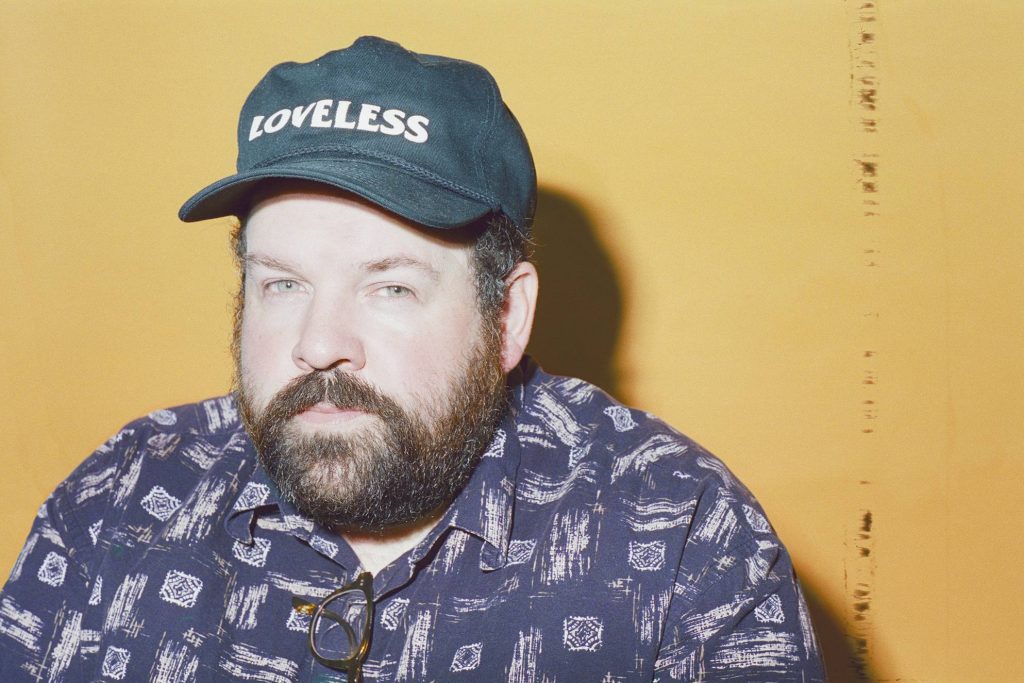
New Shane MacGowan Book Documents Drinking, Drugging, Fighting, and Brilliance of Pogues Singer
Writing the biography of the man best known for marrying traditional Irish music with British punk — a sound once described by concertina player Noel Hill of the band Planxty as a “terrible abortion” of Irish music — was never going to be easy. To further complicate the matter, Shane MacGowan’s hatred of interviews is almost as notorious as his long and sophisticated affair with drugs and alcohol. Such is punk.
When it comes to the story of MacGowan’s life, it has never been about “just the facts.” However, an attempt has now been made. A Furious Devotion: The Life of Shane MacGowan by British journalist Richard Balls serves up the most thorough account of the man — and myth — to date. In a nearly 400-page biography, out Nov. 18 in the U.S., Balls has attempted through extensive interviews and research to do what has proved so difficult through the years — to parse where the facts end and the myth begins. “Some of these never get resolved and probably never will be, but I am determined not to give up in my quest to sort the myths from the truths and better understand this shy and complex man,” Balls writes.
blogherads.adq.push(function () {
blogherads
.defineSlot( ‘medrec’, ‘gpt-dsk-tab-country-article-inbody1-uid0’ )
.setTargeting( ‘pos’, [“mid-article”,”mid”,”in-article1″,”btf”] )
.setSubAdUnitPath(“music//country//article//inbody1”)
.addSize([[300,250],[620,350],[2,2],[3,3],[2,4],[4,2]])
;
});
The son of Irish émigré parents, MacGowan was born and raised in England and spent childhood summers and holidays in rural County Tipperary, Ireland, with his mother’s extended family of staunch Irish republicans. Now residing in Dublin, he still speaks with an English accent, but maintains that he is Irish, for it was those experiences in Ireland that MacGowan says formed his musical and spiritual core. Some of the first traditionalists to hear the Pogues amalgamations might have been shocked, even appalled, but other icons of traditional Irish music such as the Dubliners and Christy Moore understood the power of MacGowan’s writing early on.
Before joining the Pogues in the mid-1980s, MacGowan had been a fixture on London’s punk scene; he could be seen pogoing in the front row at endless gigs and going by the alias Shane O’Hooligan. Balls recounts how the young MacGowan, after his release from a psychiatric ward around the age of 19, found his calling living and breathing punk during the Sex Pistols’ ascent. He put out a fanzine and was frequently interviewed by the establishment press, achieving national notoriety after his ear was bitten off at a Clash gig, an incident that was written up in NME. Soon, he formed his first band, the Nipple Erectors (or Nips), with girlfriend Shanne Bradley.
Years later, John Lydon (a.k.a. Johnny Rotten) of the Sex Pistols would question MacGowan’s Irish bona fides, writing in his memoir that Shane conveniently traded in the Union Jack garb he wore at Pistols shows for an Irish tricolour when he joined the Pogues. In Crock of Gold: A Few Rounds With Shane MacGowan, an affecting and sometimes hard-to-watch documentary about the musician released last year by filmmaker Julien Temple, MacGowan riposted that Lydon had failed to see the “IRA” emblazoned on his forehead. It’s a classic Shane moment.
Punk might have been a free-for-all, but the early Eighties was a hard time to be Irish in London. Balls notes that the Troubles in Northern Ireland were at a critical stage and the IRA was still conducting bombing campaigns in London and other parts of Britain. “Discrimination was rife,” the author writes. “Anyone with an Irish accent could attract suspicion and some deliberately kept a low profile. But not Shane. He had always been immensely proud of his Irish heritage and never hid it from anyone.” In the early days of the Pogues, MacGowan was attacked and beaten up on a seemingly regular basis. Whether it was because of his pro-IRA stance, odd appearance, or just plain big mouth, is the subject of some debate.
blogherads.adq.push(function () {
blogherads
.defineSlot( ‘medrec’, ‘gpt-dsk-tab-country-article-inbody2-uid1’ )
.setTargeting( ‘pos’, [“mid-article”,”mid”,”in-article2″,”btf”] )
.setSubAdUnitPath(“music//country//article//inbody2”)
.addSize([[300,250],[300,251],[620,350],[2,4],[4,2]])
.setLazyLoadMultiplier(2)
;
});
In the midst of the punk maelstrom, MacGowan was still soaking up Irish music. He started playing with Pogues co-founders and friends Spider Stacy and Jem Finer (both English-born) in an Irish-folk side project in the early Eighties, a gig that later segued into the Pogues. MacGowan’s first composition for the Pogues was “Streams of Whiskey,” a paean to Irish writer Brendan Behan and the spirit the Irish call “water of life”; indeed, the band’s identity seemed to be crystallized with its very first song.
Soon, the Pogues — at that time called Pogue Mahone (the Anglicized version of the Irish phrase for “kiss my arse”) — started gigging regularly around London. Ball describes in detail how they took the scene by storm with a novel mix of tradition and ferocious energy that was unlike anything else going on at the time, anywhere. As the band’s popularity grew, some began to question the authenticity of their Irishness, but “Pogue Mahone didn’t set out to be part of any scene,” Balls writes. “Beyond Dexys [Midnight Runners], no one else was playing Irish music and the patent on hot-wiring traditional songs with punk’s raw power rested firmly with Shane.”
It is not lip service, then, when English record producer Steve Lillywhite, who worked on two Pogues albums, says in A Furious Devotion that he considers MacGowan as Irish as St. Patrick. Essentially, Ball’s book insists that Shane’s writing and the music of the Pogues is about the experience of being Irish in London, about exile, about longing for a mythical homeland that someone has taken from you. It’s nostalgia in the original sense of the term — pain from an old wound that you long to heal. It is the voice of the Irish diaspora, and yet it has become part of the DNA of the Emerald Isle itself. For as Gerry Adams, former leader of Sinn Féin and a staunch advocate for unification, tells MacGowan near the end of A Crock of Gold, “The more I listen to your songs, I think they broadened our sense of ourselves, broadened our sense of Irishness, and deepened our culture.”
He is not drunk but his motor skills are kaput; the author has to help him light his cigarette.
In the prologue, Balls recounts his first encounter with MacGowan outside a London bistro in 2012. MacGowan rarely grants interviews, but this meeting has been facilitated by Irish actor Paul Ronan, a longtime friend of Shane’s and the father of Saoirse Ronan. The toll taken by MacGowan’s prodigious booze and drug intake over the decades has long been obvious, and Balls shows up for that first interview to find MacGowan in bad shape. He is not drunk but his motor skills are kaput; the author has to help him light his cigarette. MacGowan later retreats to the bathroom, and after an extended absence, Balls goes in to find that Shane has locked himself in a stall and can’t get out. But despite the chaos, the author is captivated. “It’s clear that I am in the company of a highly intelligent, extremely well-read man, with an encyclopedic knowledge of pretty much everything,” he writes. “There are moments of irascibility, but overall, Shane is good company.”
blogherads.adq.push(function () {
blogherads
.defineSlot( ‘medrec’, ‘gpt-dsk-tab-country-article-inbodyX-uid2’ )
.setTargeting( ‘pos’, [“mid-article”,”mid-articleX”,”mid”,”in-articleX”,”btf”] )
.setSubAdUnitPath(“music//country//article//inbodyX”)
.addSize([[300,250],[300,251],[3,3],[620,350]])
.setLazyLoadMultiplier(2)
;
});
Balls will spend a great deal of time with Shane over a two-year period, but the subject is not always game to talk. “Day blurs into night and night into day,” Balls writes of a 2018 episode in MacGowan’s Dublin flat. “He will only talk when he is in the mood …” and spends most of his time watching television (gangster films and Westerns are particular favorites). His glass is never far out of sight.
Balls also conducted interviews with MacGowan’s friends, family (including wife Victoria Mary Clarke), and fellow musicians, many of whom had never spoken publicly about the musician. The author spent time at the family homestead in Tipperary as well, with Shane’s sister Siobhan MacGowan, a writer in her own right who provided invaluable insight and context for the book.
From family and friends a portrait emerges of a mischievous child with a precocious intellect. By the age of 12, Shane was reading Dostoevsky, Sartre, and Joyce, a particular favorite of his and his father’s. MacGowan’s parents had moved to England for work, but it was in many ways a very Irish household in which his creative talent was evident early on. He eventually earned a scholarship to the prestigious Westminster school because of his writing ability, but was kicked out after getting caught dealing drugs to fellow students. The family had begun to struggle and the young MacGowan had started to rebel. Shane’s mother Therese, a charismatic and attractive woman once pursued by the Irish poet Patrick Kavanagh, could not adjust to the urban grind and suffered a nervous breakdown. Shane developed a relationship with LSD, and would soon have a breakdown of his own.
By 1984, the Pogues had attracted considerable attention in London music circles and soon signed with Stiff Records. They recorded their debut Red Roses for Me, an album Spider Stacy says comes closest to capturing the band’s “essence.” Shane’s songs seemed to arrive fully formed, as if he’d been writing for the band for years. “The thing about Shane’s writing is that the songs could only have been written by someone who was looking back at Ireland, and they were very much about London as well,” Jem Finer, the Pogues banjoist and a contributing songwriter, says in the book. “You could take all the places, names, the bars and cafes and streets and make a fascinating Shane MacGowan’s London out of them. And that, too, is something I don’t think people understand. It’s London-Irish; London songs but through this ‘outsider of Ireland’ prism. Most of us in the band were in some way outsiders. People who had grown up feeling a bit alienated. My father is a Jewish guy, and I grew up being ribbed for being a ‘Yid.’ So, I had a kind of feeling of being a bit ‘other’ and I think it was quite a powerful thing in the chemistry of that group.”
blogherads.adq.push(function () {
blogherads
.defineSlot( ‘medrec’, ‘gpt-dsk-tab-country-article-inbodyX-uid3’ )
.setTargeting( ‘pos’, [“mid-article”,”mid-articleX”,”mid”,”in-articleX”,”btf”] )
.setSubAdUnitPath(“music//country//article//inbodyX”)
.addSize([[300,250],[300,251],[3,3],[620,350]])
.setLazyLoadMultiplier(2)
;
});
Elvis Costello was an early fan and invited the Pogues to open for him on tour. Balls recounts Costello’s falling for Cait O’Riordan, who left the Pogues a few years later, and their subsequent marriage. Fissures in the band began to appear at this time; Shane is often late to gigs and nowhere to be found. “We nearly got thrown off the tour three times,” MacGowan tells Balls. “I did IRA graffiti all over the PA bus and Spider did UDA [Ulster Defence Association], on the other side … The guy was in love with Cait, so that’s the reason we didn’t get sacked off the tour. And we gave him street cred.” (It was during this tour in the fall of ’84 that the IRA attempted to assassinate Margaret Thatcher and her cabinet.)
Costello would go on to produce the band’s sophomore album Rum, Sodomy, & the Lash, and the Pogues started headlining their own tours. Frank Murray, who had managed the storied Irish band Thin Lizzy, became the Pogues manager and a “battle of wills commenced” between him and MacGowan that would not subside until Shane’s departure. MacGowan’s writing was getting better and becoming more multi-dimensional, evident on songs like “A Pair of Brown Eyes,” which was heavily steeped in allusions to traditional Irish music.
By this time, the relentless touring schedule was leaving its mark, and MacGowan was hospitalized (the first of many hospitalizations) with pneumonia. The band closed the year 1985 as darlings of the U.K. music press and embarked on their first tour of America the following year, where they played to raucous, sold-out crowds. For the band’s third and arguably best album, If I Should Fall From Grace With God, manager Frank Murray enlisted Steve Lillywhite to produce.
The album found more Pogues contributing songwriting efforts and the group expanding their sonic palette. This is also the album that gave the world “Fairytale of New York,” a co-write between MacGowan and Finer that has become the most popular Christmas song of the 21st century in the U.K., according to British music licensing body, PPL. The song catapulted the band into another realm of popularity, and the insane touring schedule that followed would mark an inflection point for the Pogues as the drug and alcohol abuse escalated and MacGowan’s mental state began to decline. “Over the dark months ahead, people around him would notice an ominous change in his [Shane’s] behaviour,” Balls writes. “For Siobhan, the brother she had always known and loved was about to disappear.”
blogherads.adq.push(function () {
blogherads
.defineSlot( ‘medrec’, ‘gpt-dsk-tab-country-article-inbodyX-uid4’ )
.setTargeting( ‘pos’, [“mid-article”,”mid-articleX”,”mid”,”in-articleX”,”btf”] )
.setSubAdUnitPath(“music//country//article//inbodyX”)
.addSize([[300,250],[300,251],[3,3],[620,350]])
.setLazyLoadMultiplier(2)
;
});
After If I Should Fall From Grace With God, MacGowan would stay with the Pogues for two more albums, but he had wanted out after that tour ended. He was not in his right mind, gobbling insane amounts of LSD and having conversations with a dead Jimi Hendrix, among other pastimes. When the Pogues were invited to open six shows for Bob Dylan in 1989, MacGowan failed to show because he was holed up in a friend’s apartment in London, strung out like a kite. The band played the shows without him, though it’s not clear if Dylan even noticed.
MacGowan would eventually be fired from the band during a tour stop in Japan in 1991. “On stage he [Shane] had become a liability, lurching and wheeling about and tarnishing their reputation as one of the world’s most exciting live acts with every slurred line and missed cue,” Balls writes. “It had to end.” Heroin had become a constant companion by this point, along with older acquaintances like amphetamines, acid, and booze. After the Pogues dissolved, MacGowan formed a band called Shane MacGowan and the Popes. The group’s first album, The Snake, was well received and the sound moved away from the Irish into more straight-up rock & roll territory. While these songs are not regarded as the best in the MacGowan canon, there are many strong efforts. Tunes like “The Snake With Eyes of Garnet,” in which 19th-century Irish poet James Clarence Mangan makes an appearance, is a powerful contribution to the oeuvre of Irish rebel music.
Despite his lack of output in the 21st century, MacGowan’s music and that of the Pogues continues to inspire and influence new generations. No less an authority on songwriting than Bruce Springsteen acknowledged Shane as “a master” in a 2020 interview with Ireland’s The Late Late Show. “He’s the man, you know?” Springsteen said. “I truly believe, as I sit on my radio show, that a hundred years from now, most of us will be forgotten. But I do believe that Shane’s music is going to be remembered and sung. It’s just deep in the nature of it.”
Joseph Cleary, professor of English at Yale University who has written extensively about Irish literature, makes the case in The Irish Times that MacGowan is the last in a long line of the Spailpín poets— rough-and-rowdy rebel voices like Mangan and Behan who wrote about exile and hard times.
But perhaps MacGowan’s enduring appeal is in the power of the music alone. Amid all the drinking, drugging, fighting, and fucking that goes on in his songs, there is the undeniable presence of a tender voice that speaks directly to the human heart.
blogherads.adq.push(function () {
blogherads
.defineSlot( ‘medrec’, ‘gpt-dsk-tab-country-article-inbodyX-uid5’ )
.setTargeting( ‘pos’, [“mid-article”,”mid-articleX”,”mid”,”in-articleX”,”btf”] )
.setSubAdUnitPath(“music//country//article//inbodyX”)
.addSize([[300,250],[300,251],[3,3],[620,350]])
.setLazyLoadMultiplier(2)
;
});
Ball relates a story told to him by Ingrid Knetsch, a hardcore Pogues devotee who started the band’s international fan club. Asked what it is that draws people to the music of Shane MacGowan, Knetsch replies: “Shane is their hero in the darkness; his voice comforts them in hard times and helps them celebrate good times. For example, I received a letter from a Croatian soldier during the Croatian–Serbian war. In this letter, he wrote: ‘When I’m in the trenches and I hear Shane’s voice, I’m not afraid of the Serbian bombs anymore.’ I had tears in my eyes, as Shane did, when he read it.”




